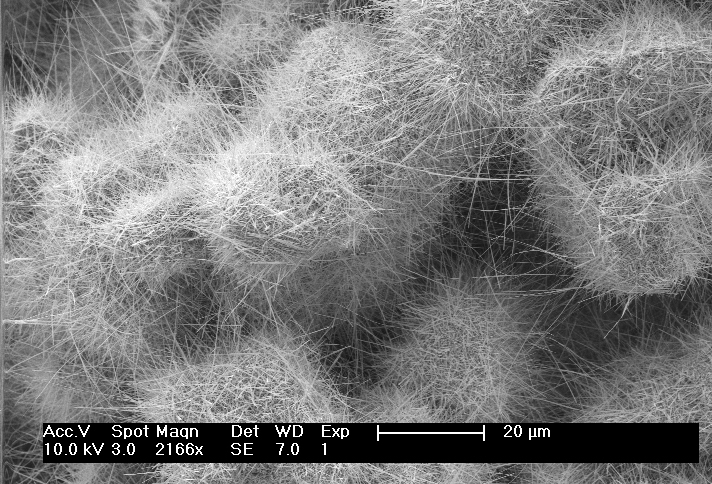Future applications will include bulletproof personal protective vests, helmets and other protective measures

The Israeli nanotechnology company ApNano Materials stated that the scientific journal Advanced Materials published a study in its June issue showing that the company's nanoparticles are an excellent material for containing shock waves and one of the most resistant materials available today. The revolutionary particles are spherical and made of special metal compounds. In the professional jargon they are called inorganic fullerenes.
Shock absorbing materials are currently used in various applications such as personal protective vests, vehicle armor, shields, helmets and other protective measures. The inorganic fullerenes are twice as strong as the best shielding materials in use, such as boron carbide and silicon carbide, and are 4-5 times stronger than steel.
The experiments with the inorganic fullerenes were carried out by a research team led by Prof. Yan Qiu Zhu from the Department of Mechanics, Materials and Production Engineering of the University of Nottingham in England. The material was exposed to severe shocks through shots at a speed of 1.5 km per second. The inorganic fullerenes withstood the pressures created by the impact - pressures of up to 250 tons per square cm. These pressures are similar to the pressure obtained, for example, when four huge diesel locomotives are dropped on an area the size of a fingernail. The inorganic fullerenes are so strong that after the impact, the material remains the same as it was before the impact. In contrast, hollow spheres of carbon with a similar structure do not withstand a tenth of the pressures that the inorganic fullerenes did.
The material of ApNano Materials is based on a breakthrough in the field of nanotechnology carried out at the Weizmann Institute by a group led by Prof. Rashef Tana, currently head of the Department of Materials and Surfaces. Dr. Menachem Ganot, currently the CEO of the company, was a researcher in the group and the one who synthesized the new material for the first time within the research group.
The diameter of the nanoparticles is 100 nanometers (nanometer - billionth of a meter) or one-thousandth the thickness of a human hair. The small size of the spheres, similar to onion skins, gives them unique properties that are not possible in conventionally sized materials with the same composition, which makes them attractive for many commercial applications.
Dr. Niles Fleischer, ApNano Materials' vice president for business development and product development, said that one of the promising applications for these shock absorber materials is a solid lubricant to improve the performance of moving parts, especially in extreme load situations. "We commercialized the substance under the name NanoLub. Many tests performed in the lubricants industry have clearly shown that it reduces wear and tear and does so significantly better than conventional lubricants," said Dr. Fleischer. NanoLub is used as an additive to improve lubricants, as a coating to prevent friction, as well as impregnation for creating parts that perform self-friction.
Dr. Menachem Ganot, CEO of ApNano Materials, stated that the company is considering using these materials in particularly strong composite materials in the personal security and vehicle security market, areas where the ability to absorb serious injuries is critical.
The special properties of the inorganic fullerenes arouse great interest in industry around the world. Aharon Feuerstein, Chairman of ApNano Materials and the company's CFO, said that to date the company has already produced a large amount of the material at its facility in the Weizmann Science Park in Ness Ziona. "Today, the company is before the establishment of a semi-industrial facility that will produce between 100 and 200 kg per day," Feuerstein said, "after that an industrial facility will be established that will produce tons of the material daily." He added that the company has received letters of intent from global manufacturers of lubricants to supply thousands of tons of the material per year.
